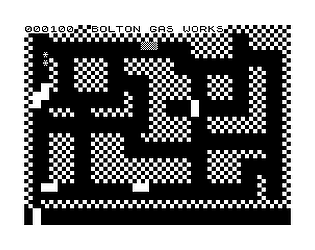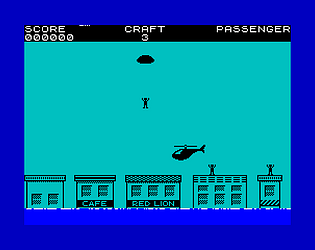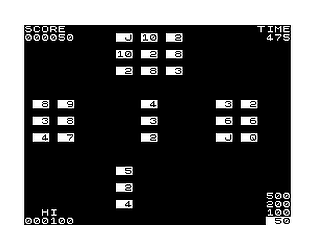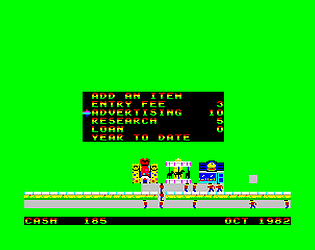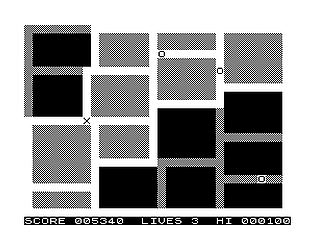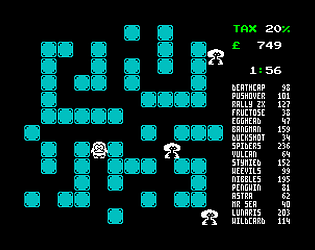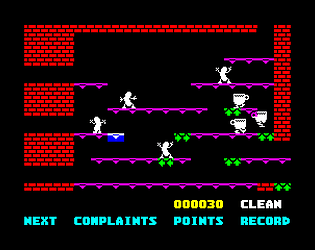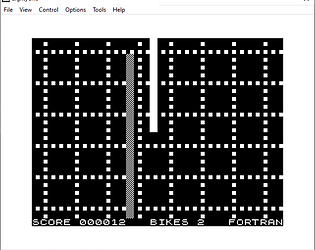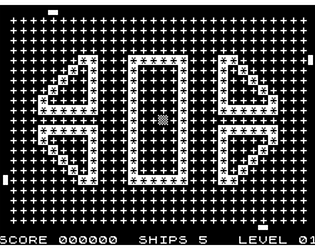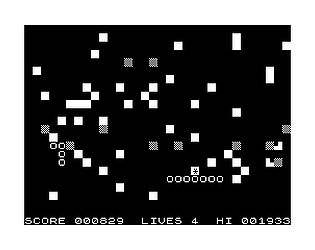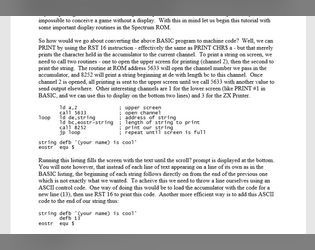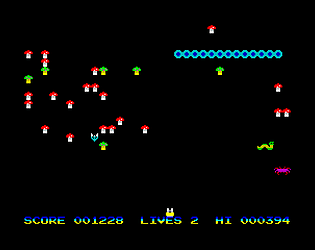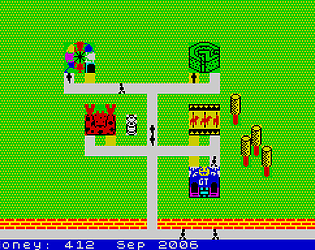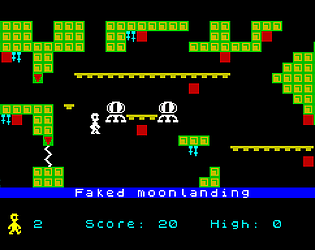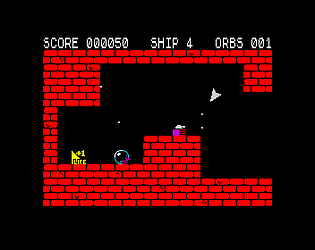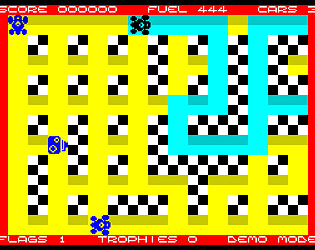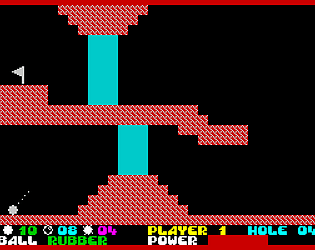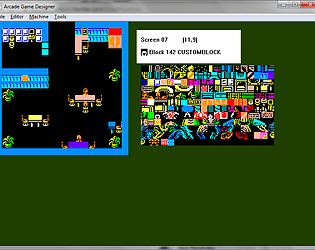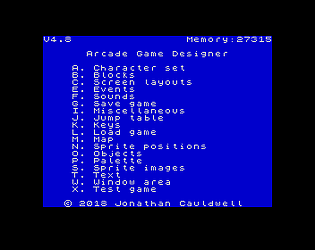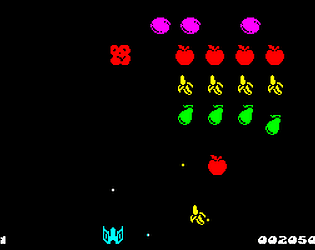It will be updated at some point.
Jonathan Cauldwell
Creator of
Recent community posts
LOL. You've seen the Peter Kay routine where he mishears the lyrics to songs haven't you? It's "thank you" but if you tell people what they're about to hear in advance, that's what they'll hear. I seem to remember QI proving the point some years ago. Differences between emulators don't help but it sounds fine to me on the EightyOne emulator.
It's fantastic to see the games you have created this year, well done everyone!
Being a coder is a little bit like being Harry Potter, only for real. Writing code is like writing a magic spell. We can write a few lines and suddenly we can make a kangaroo jump over barrels, a ball fly into the back of a net or a helicopter rescue people trapped near a volcano. We can create any world and make anything happen in code. We are all wizards, we all have magical powers when we can code and we can spread magic with our imagination. Thank you for using your imagination and creating your magical games. I hope that some of you will consider writing software as a career, it's absolutely one of the very best jobs; it's every bit as good as being a wizard.
Off the top of my head I'm not sure what the problem is. If you post on the forums maybe someone who has had a similar issue will remember what the solution was.
No, it wouldn't be straightforward to do that because the extra RAM is banked. MPAGD would have to spit out multiple listings and the user would have to manually assemble them individually then save them out as multiple code blocks, not to mention writing a BASIC loader program with some machine code to load the code files into the relevant RAM banks. Anyone capable of doing that is already capable of taking the existing assembly language listing and modding it to use the extra memory.
We have engines and compilers for Z80, 6502 and 6809 machines so it's probably an idea to start with one of the 6502 models. Modding the compilers is probably the simplest job, that's written in C. The engines take a bit more converting, obviously the way sprites and display routines are handled differ tremendously between formats. Kees van Oss did the Z80->6502 conversion so he's the best person to ask. He's on the MPAGD forums and in the Facebook group. I'd be doing the Windows editors so you'd need to let me know what you want and how you want graphic data output for the compiler. The best place to chat about all of this might be Facebook
Not yet, we're still looking for a C64 expert to convert the engine and make the few necessary mods to the compiler (easier than it sounds). I'm always happy to work with a volunteer, add the editors to the Windows tool and output the graphics in the required format. Likewise for any other machines.
I don't recall off the top of my head but there should be a couple of batch files within the "Suite ZX" subdirectory, one called build.bat and the other export.bat. If you look in there you should get an idea, you can even modify them to copy the .tap anywhere you like for convenience. If you have any further questions they're probably best answered over at the AGD forum.
Thank you, I hope you have fun with it and get to create an 8-bit game. MPAGD is designed so that the user can create games regardless of programming experience. It can create the initial scripting code for you, which can be amended later when you feel confident enough to make changes - small at first, bigger changes later on. As your experience grows you'll start to realise just how powerful the tool is
At present I don't know of anyone working on a C64 compiler or engine so feel free to make a start. The best place would be with the compiler and engine for an existing 6502 machine; Kees van Oss did the initial Z80->6502 conversion work so he's the best person to talk to about that. You'd also need to tell me about the graphics format you want so I could update the Windows editor and output data in the correct manner for the compiler/engine to use.
Briefly, check that you have put a player sprite in your preferred re-spawn position on every screen on which the player might die. If that doesn't work, post on the AGD forums with a little more detail


